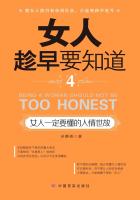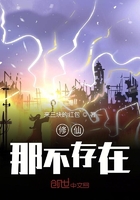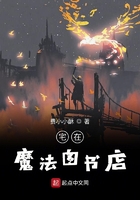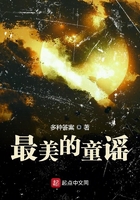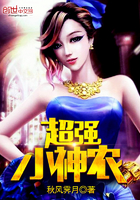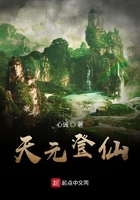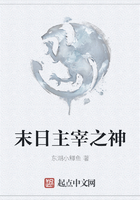Once regarded as a “ liberal intellectual,” Chinese writer Mo Luo has surprised readers with a new ultra-nationalist book. NewsChina tries to find out why.
By Yuan Ye
Writer Mo Luo got his pen name from The Power of the Devil’s Poems (Mo Luo Shi Li Shuo), an essay by Lu Xun (1881-1936), one of China’s 20th century literary masters. “Mo Luo” literally means “devil” or “demon.” He said it distinguishes him from the “slavish Chinese”: “if they regard themselves as saints, then I’d like to be a devil.”
He published his first collection of essays entitled Notes from the Shamed in 1997, shocking the Chinese intelligentsia with its scathing criticism of the Cultural Revolution (1966-1976), the innate weaknesses of the Chinese people and the unrestricted power of the State. He was called the successor to the critical spirit of Lu Xun, and was widely praised for his uncompromisingly liberal views.
Now, almost 13 years later, Mu Luo is at it again, shocking everyone, friends and foes alike, with his new book China Rises.
In his new book, however, Mo Luo praises the virtues of nationalism, exhorts totalitarianism, advocates hatred towards the West and at one point, even promotes the notion of war. His old enemies are now his friends, while many of his former friends are now his enemies.
In the course of this dramatic literary U-turn, Mo Luo, whose writing was once thought to embody the spirit of the May Fourth Movement (the cultural, political and scientific movement of 1919, widely regarded as China’s 20th century enlightenment) now blames the May Fourth generation for destroying traditional Chinese culture and refers to the movement as a “collective spiritual collapse.”
Yu Jie, formerly one of Mo Luo’s closest friends, commented that China Rises can be read as a tribute to Adolf Hitler’s My Struggle (Mein Kampf) because the book draws a parallel between China’s rise and the rise of militarist Japan and Nazi Germany. One of the opening sentences in the book’s preface reads, “We should even organize our national strength through mobilizing for war to secure the success of our rise and to fight for it to the last drop of our blood.”
His book has drawn extensive criticism on both the Internet and from the media. But Mo Luo is not without his supporters. On the popular social network site douban.com, 42.1 percent of users awarded China Rises one star (the worst), while 31.6 percent awarded the book five stars (the best). Voices of support can be heard in more mainstream areas too. Professor Kong Qingdong from Peking University, published a 4,000-word essay in support of China Rises on his blog, while Wang Xiaodong, one of the authors of the recent bestseller Unhappy China, told NewsChina, “The change in Mo Luo’s attitude is only natural, criticism of our people by Chinese elites is so ridiculous.”
When asked how his views could have changed so radically, Mo Luo suggests that his views have not changed much at all. He says in the past he stood for the rights of weak people, whereas now he stands for the rights of a country that is weakened by an unfair international system.
But how exactly was such a negative perspective formed of “the international community?” Born into a poor family in East China’s rural Jiangxi Province, he has not once in 49-years set foot outside of China, nor has he had any significant or lasting contact with foreigners. In addition, he has no knowledge of foreign languages, including English. Instead he gains his knowledge about the outside world from translated books and news. He reads newspapers, but mainly the Reference News, a newspaper sponsored by the State-run Xinhua News Agency which reprints incomplete translated reports from foreign media. “In fact, we are products of what we are fed from our education,” said Mo, while questioning his own beliefs 20 years ago.
NewsChina met with Mo Luo to see if it could set the record straight.
NewsChina: You said in your early works that the Chinese lack the spirit to repent. For example, they show no remorse about the wrongs perpetuated in the Cultural Revolution. Also, you were against “violent revolution” and State power. How did you form those thoughts?
Mo Luo: Those remarks I made in the past still make sense if we are discussing the issues I discussed in my older books. But the issues I’m concerned with now are different.In addition, I’ve learned different things. There has been a very important change in my outlook.
Essentially, I’ve begun to understand China from an international perspective. It’s true that I thought the Chinese lacked the ability to repent. But when I learn more about the history of the West, I realize this inability to repent is universal. For example, in the 500 years of the West’s colonial history, Western colonialists conquered and killed people all over the world. Has any one of them ever repented? Have white Americans showed any remorse over the killing of native Americans?
If we discuss Chinese issues, without referring to the big picture, we are actually separating China from the rest of the world, and are therefore bound to draw the conclusion that the Chinese are uniquely bad at everything. And each time we say that we are not good at something, we are indicating that Westerners are better than us at that same thing. For instance, when we say we Chinese don’t repent, we always mention that Christianity embodies the spirit of repenting. When we say that, we have actually placed Westerners in a morally superior position to us. But in fact, Westerners have never repented. You don’t find a single example of any Western nation ever repenting for what they have done.
NewsChina: How do you explain the former West German chancellor Willy Brandt getting down on his knees in front of the cenotaph in the Jewish Ghetto in Warsaw?
Mo Luo: Of course, it’s easy to find one example over the course of thousands of years. We also have many similar examples in our own history. This single case doesn’t mean anything.




![[苏]中等教育课程改革理论发展与列德涅夫](https://i.dudushu.com/images/book/2019/09/28/055817000.jpg)

